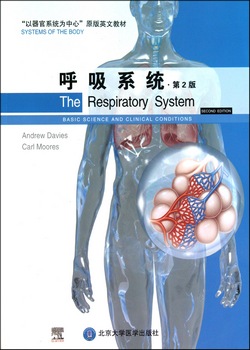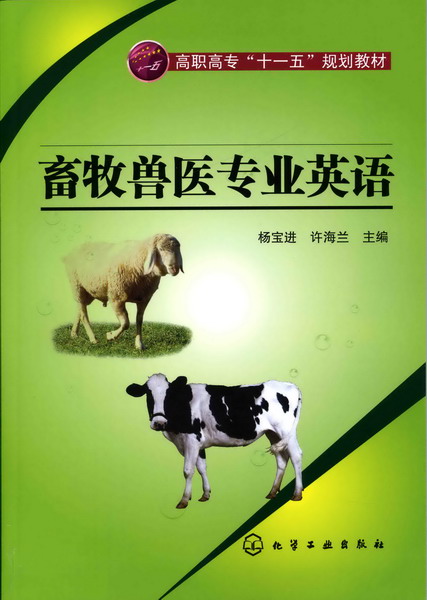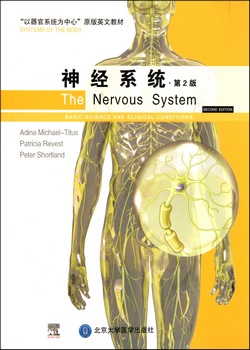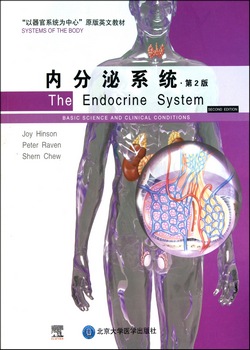呼吸系统(第2版) / 以器官为中心原版教材
定价:¥49.00
作者: Andrew Davies
出版时间:2011-06
出版社:北京大学医学出版社
- 北京大学医学出版社
- 9787565901171
- 140698
- 49153138-0
- 平装
- 16开
- 2011-06
- R332
- 医学
- 本科 研究生(硕士、EMBA、MBA、MPA、博士)
内容简介
“以器官系统为中心”的医学教学模式是国际医学教育的趋势。本系列书是世界著名医药卫生出版集团爱思唯尔公司出版的一套“以器官系统为中心”的医学基础课程教材。该套教材第1版出版后受到世界各地许多医学院校的欢迎,并被多家进行“以器官系统为中心”教学的医学院校选定为教材。第2版根据第1版出版后教师和学生的反馈意见,结合医学知识的更新进行了全新修订。在编写内容上,该系列教材强调基础与临床的整合。每一章节都是围绕着一个临床病例展开,通过对病人问题的呈现以及解决过程引出对相关知识的探究,从而使与器官系统结构、功能以及疾病相关的重要的基础医学知识得到了完善的整合。在版式安排上,图框中的病例资料与正文中的医学知识完美匹配,一步一步地激起读者的求知欲望。本册为《呼吸系统》。
目录
1 INTRODUCTION 1
Introduction 2
What is respiration? 2
The need for respiration 2
Diffusion in respiration and the circulation 3
Timing in the circulation and respiration 3
Basic science of respiration 3
Drugs 9
2 STRUCTURE OF THE RESPIRATORY SYSTEM,RELATED TO FUNCTION 11
Introduction 12
The upper airways 12
The intrathoracic airways 15
Blood vessels 18
Pulmonary hypertension 18
The lymphatics 19
The nerves 19
Gross structure of the respiratory system 19
Pleurisy 20
The diaphragm and chest wall 20
How breathing is brought about 22
Embryology 23
Air-conditioning 24
Metabolic activity 26
Metabolism of circulating biologically active substances 27
Non-respiratory functions 27
3 ELASTIC PROPERTIES OF THE RESPIRATORY SYSTEM 29
Introduction 30
Intrapleural pressure (Ppl) 30
Static lung compliance (CL) 31
The effect of disease 32
The physical basis of lung compliance 32
4 AIRFLOW IN THE RESPIRATORY SYSTEM 41
Introduction 42
How airflow is brought about 42
The nature of airflow 43
The major determinant of flow - radius 43
Airways resistance and obstructive pulmonary disease 43
The clinical situation 45
Sites of airways resistance 46
Asthma and airways smooth muscle 48
Bronchomotor tone 49
Pharmacological treatment of asthma 50
Clinical definitions 50
Bronchitis and mucus 52
Emphysema and radial traction 53
Intrapleural pressure and cough 54
Clinical tests for changes in resistance 57
Work of breathing 57
5 VENTILATION OF THE RESPIRATORY SYSTEM: THE IMPORTANCE OF ITS LACK OF UNIFORMITY IN DISEASE 61
Introduction 62
Spirometric abnormalities in disease 63
Uneven distribution 64
Dead space. 64
Alveolar dead space in disease 65
The Bohr equation 66
Factors affecting physiological dead space 68
Alveolar ventilation and respiratory exchange 68
The alveolar gas equation 69
Distribution of inspired gas 69
Other factors influencing distribution 72
6 GAS EXCHANGE BETWEEN AIR AND BLOOD:DIFFUSION 77
The path from air to tissue 78
Lung disease and diffusion 79
Fick's Law of Diffusion 79
Measuring transfer factor 82
Treating diffusion difficulties 83
Carbon dioxide and other gases 83
7 THE PULMONARY CIRCULATION: BRINGING BLOOD AND GAS TOGETHER 85
The functions of the pulmonary circulation 86
The anatomy of the pulmonary circulation 86
Matching ventilation and perfusion 89
Distribution of blood flow through the lungs 89
Regional differences in ventilation in the lungs 94
Ventilation/perfusion matching and its effect on blood
O2 and CO2 content 95
Shunt 97
8 CARRIAGE OF GASES BY THE BLOOD AND ACID/BASE BALANCE 99
Introduction 100
Oxygen transport 100
Dissolved oxygen: do we really need Hb and why
keep it in red cells? 108
Carbon dioxide transport 109
Acid-base balance 113
9 CHEMICAL CONTROL OF BREATHING 119
Introduction 120
Oxygen lack 120
Carbon dioxide excess 125
10 NERVOUS CONTROL OF BREATHING 129
Introduction 130
The rhythm generator 131
Pattern of breathing in COPD 132
The respiratory 'centres' 133
The medullary groups 133
Conscious control of breathing 134
Respiratory muscle innervation 135
Neuromuscular disorders 137
Vagal reflexes 137
Dyspnoea 140
Other reflexes 140
11 LUNG FUNCTION TESTS: MEASURING DISABILITY 143
Introduction 144
Spirometry 144
Flow measurements 145
Plethysmography 145
Lung mechanics 146
Transfer factor (diffusing capacity) 147
Blood gases 148
Gas washouts 148
Exercise testing 150
Challenge tests 151
Appendix: some basic science 153
Glossary 159
Index 165
Introduction 2
What is respiration? 2
The need for respiration 2
Diffusion in respiration and the circulation 3
Timing in the circulation and respiration 3
Basic science of respiration 3
Drugs 9
2 STRUCTURE OF THE RESPIRATORY SYSTEM,RELATED TO FUNCTION 11
Introduction 12
The upper airways 12
The intrathoracic airways 15
Blood vessels 18
Pulmonary hypertension 18
The lymphatics 19
The nerves 19
Gross structure of the respiratory system 19
Pleurisy 20
The diaphragm and chest wall 20
How breathing is brought about 22
Embryology 23
Air-conditioning 24
Metabolic activity 26
Metabolism of circulating biologically active substances 27
Non-respiratory functions 27
3 ELASTIC PROPERTIES OF THE RESPIRATORY SYSTEM 29
Introduction 30
Intrapleural pressure (Ppl) 30
Static lung compliance (CL) 31
The effect of disease 32
The physical basis of lung compliance 32
4 AIRFLOW IN THE RESPIRATORY SYSTEM 41
Introduction 42
How airflow is brought about 42
The nature of airflow 43
The major determinant of flow - radius 43
Airways resistance and obstructive pulmonary disease 43
The clinical situation 45
Sites of airways resistance 46
Asthma and airways smooth muscle 48
Bronchomotor tone 49
Pharmacological treatment of asthma 50
Clinical definitions 50
Bronchitis and mucus 52
Emphysema and radial traction 53
Intrapleural pressure and cough 54
Clinical tests for changes in resistance 57
Work of breathing 57
5 VENTILATION OF THE RESPIRATORY SYSTEM: THE IMPORTANCE OF ITS LACK OF UNIFORMITY IN DISEASE 61
Introduction 62
Spirometric abnormalities in disease 63
Uneven distribution 64
Dead space. 64
Alveolar dead space in disease 65
The Bohr equation 66
Factors affecting physiological dead space 68
Alveolar ventilation and respiratory exchange 68
The alveolar gas equation 69
Distribution of inspired gas 69
Other factors influencing distribution 72
6 GAS EXCHANGE BETWEEN AIR AND BLOOD:DIFFUSION 77
The path from air to tissue 78
Lung disease and diffusion 79
Fick's Law of Diffusion 79
Measuring transfer factor 82
Treating diffusion difficulties 83
Carbon dioxide and other gases 83
7 THE PULMONARY CIRCULATION: BRINGING BLOOD AND GAS TOGETHER 85
The functions of the pulmonary circulation 86
The anatomy of the pulmonary circulation 86
Matching ventilation and perfusion 89
Distribution of blood flow through the lungs 89
Regional differences in ventilation in the lungs 94
Ventilation/perfusion matching and its effect on blood
O2 and CO2 content 95
Shunt 97
8 CARRIAGE OF GASES BY THE BLOOD AND ACID/BASE BALANCE 99
Introduction 100
Oxygen transport 100
Dissolved oxygen: do we really need Hb and why
keep it in red cells? 108
Carbon dioxide transport 109
Acid-base balance 113
9 CHEMICAL CONTROL OF BREATHING 119
Introduction 120
Oxygen lack 120
Carbon dioxide excess 125
10 NERVOUS CONTROL OF BREATHING 129
Introduction 130
The rhythm generator 131
Pattern of breathing in COPD 132
The respiratory 'centres' 133
The medullary groups 133
Conscious control of breathing 134
Respiratory muscle innervation 135
Neuromuscular disorders 137
Vagal reflexes 137
Dyspnoea 140
Other reflexes 140
11 LUNG FUNCTION TESTS: MEASURING DISABILITY 143
Introduction 144
Spirometry 144
Flow measurements 145
Plethysmography 145
Lung mechanics 146
Transfer factor (diffusing capacity) 147
Blood gases 148
Gas washouts 148
Exercise testing 150
Challenge tests 151
Appendix: some basic science 153
Glossary 159
Index 165









